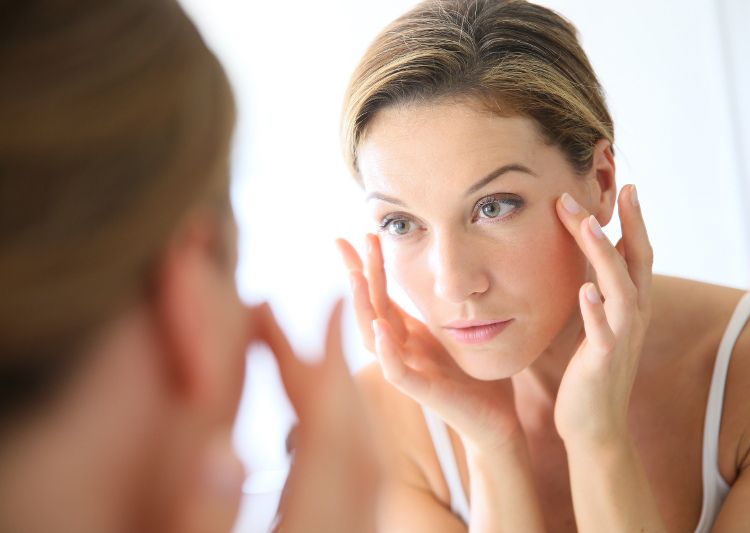Lycopene supplements supports signs of aging, says recent study
In a recently published study, a tomato-based oral supplement containing lycopene was found to support signs of aging on skin.
Photo © Shutterstock.com/goodluz

In a study recently published in Clinical Pharmacology & Biopharmaceutics1, a tomato-based oral supplement containing lycopene (Lycoderm by Lycored, Secaucus, NJ) was found to support signs of aging on skin. Sixty subjects were randomized to receive either placebo or two capsules per day of Lycoderm, amounting to 15 mg of lycopene, for 16 weeks. Results showed that subjects taking the lycopene supplement saw an average reduction in wrinkle depth of 5.6%, and a reduction in fine wrinkle severity of 6.2%.
In subject self-assessments, at 12 and 16 weeks, 58.1% and 61.3% of Lycoderm users, respectively, remarked that they noticed reduction in the appearance of fine lines and wrinkles, compared to less than 42% of subjects taking placebo. At 16 weeks, 64.5% of Lycoderm users also noticed improvements in skin brightness, compared to 48.3% of subjects taking placebo, at the same time point. At 16 weeks, 80.6% of subjects taking Lycoderm noticed improvements in skin smoothness, while improvements in skin hydration were seen at 4, 8, 12 and 16 weeks of use, by 58.1%, 74.2%, 77.4% and 90.3% of the subjects, respectively.
“We already knew that Lycoderm helps provide nourishment for the skin, building up carotenoids like a reservoir of goodness. However, seeing is believing and this study shows that Lycoderm can have a remarkable impact on skin appearance as well as health,” said Elizabeth Tarshish, Lycored's head of clinical affairs. “It’s visible evidence that beauty comes from within, showing how supplementation can help consumers achieve an ‘inner glow’ that enables them to feel truly comfortable in their own skin.”
Reference
- Tarshish E et al. "Effect of oral supplement “Lycopene” on reducing the signs of skin ageing" Clinical Pharmacology & Biopharmaceutics, vol. 9, no. 2 (2020)
Standardized valerian extract shows acute sleep benefits after one day, says recent study
December 10th 2024Results showed that after a single dose, people taking the Valerian extract experiences an acute benefit on sleep, namely a significant increase in actual sleep time compared to baseline.